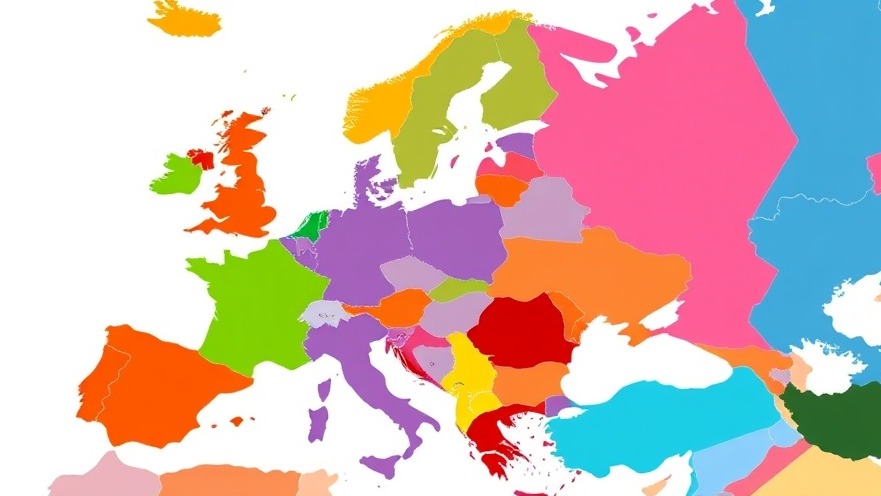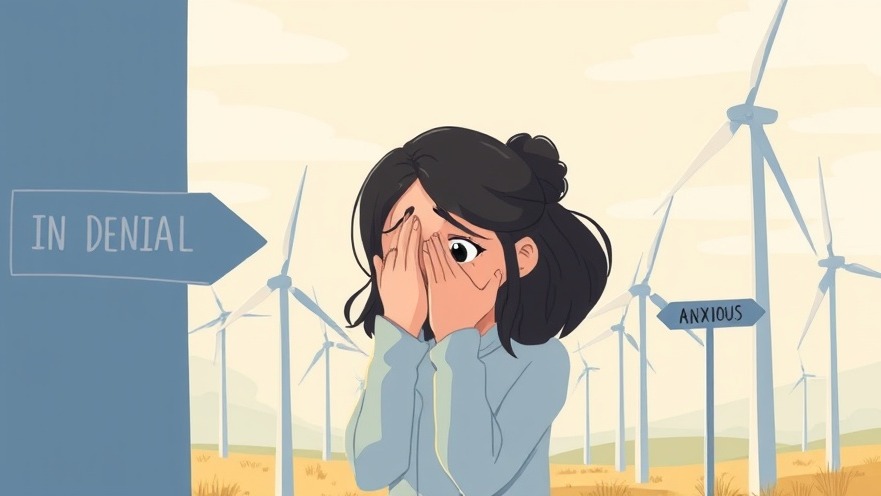
Understanding Europe's Shift Away from Coal
As climate change continues to threaten our planet, Europe is leading the charge in phasing out coal, a move that not only promises to reduce carbon emissions but to reshape the entire energy landscape. The United Kingdom has seen remarkable changes, dropping coal's contribution to the national electricity mix from 40% to zero. In this context, the UK reflects a broader trend across Europe, where several countries have eliminated coal entirely or plan to do so by the 2030 timeline. Countries like Belgium and Ireland have set notable precedents, showcasing that transitioning to cleaner energy is not just a lofty goal but an achievable reality.
Why Is Phasing Out Coal Vital?
The necessity to phase out coal cannot be overstated. Coal is among the dirtiest fossil fuels, contributing significantly to greenhouse gas emissions, which exacerbate climate change. When countries actively reduce coal use, they not only take decisive steps towards their climate goals but also foster innovation in renewable energy sectors. With governments worldwide calling for urgent action, reducing reliance on coal emerges as a critical national policy.
Lessons from Slower Paces
However, the transition isn't uniform across Europe. Countries with strong coal industries, like Poland and Germany, face unique challenges. These regions must balance the economic implications of change against the pressing need for cleaner energy. For instance, Germany's struggle exemplifies how the jobs tied to coal production can act as a significant barrier to progress. Nonetheless, innovative solutions like those adopted in Hungary and Slovakia offer pathways that prioritize both energy transition and employment.
China's Contrasting Approach
Meanwhile, while European nations are shrinking coal use, China is still building new coal plants. However, this doesn’t tell the whole story. China's concurrent expansion of renewable energy, paired with its efforts to optimize coal usage, reflects a different approach to energy management. The usage of coal plants operating at only 50% capacity underscores a shift in strategy aiming at sustainability while meeting peak energy demands.
A Global Movement Towards Clean Energy
The coal phase-out aligns with endeavors like the Powering Past Coal Alliance, which connects governments, cities, and organizations worldwide. This alliance is part of a broader movement that highlights the urgency of transitioning away from fossil fuels to embrace more sustainable energy solutions. Their collective efforts amplify global collaboration, fostering shared knowledge and strategies that can help minimize coal reliance effectively.
Opportunities Amidst Challenges
It is essential to recognize that, as countries continue to push towards coal elimination, the pathway to a clean energy future remains fraught with challenges. Nations with rising energy demands, particularly India, may find the coal transition particularly daunting. Nonetheless, success stories from countries like Chile prove that a phased approach can manage increased energy needs while reducing coal dependence.
Empowering Change Through Knowledge
Drawing valuable lessons from nations successfully moving beyond coal can guide those still heavily reliant on it. As more countries navigate their own transitions, a wealth of experience will be available, fostering new ideas and strategies tailored to diverse local contexts. This wealth of shared knowledge can enhance prospects for future energy initiatives globally.
Acting Now for Future Generations
The changes occurring within Europe regarding coal usage showcase not only a commitment to decarbonization but a positive assertion of how countries can adapt for the better. To solve today’s climate crisis, it is vital for governments, communities, and individuals to recognize that moving away from coal is not just beneficial but necessary. To make a broader impact, conversing about energy consumption choices can generate further awareness and provoke essential discussions that drive change.
 Add Row
Add Row  Add
Add 




Write A Comment